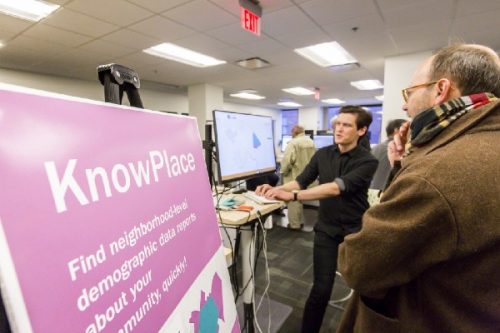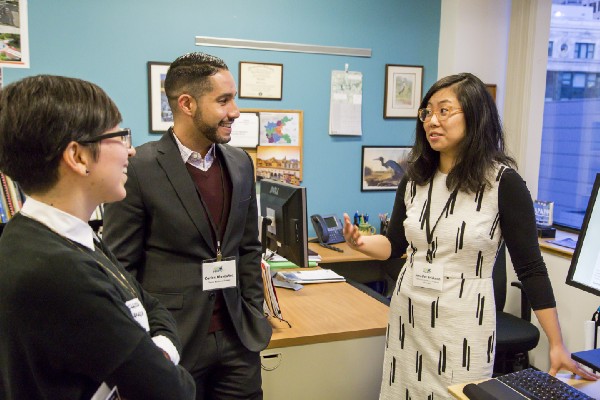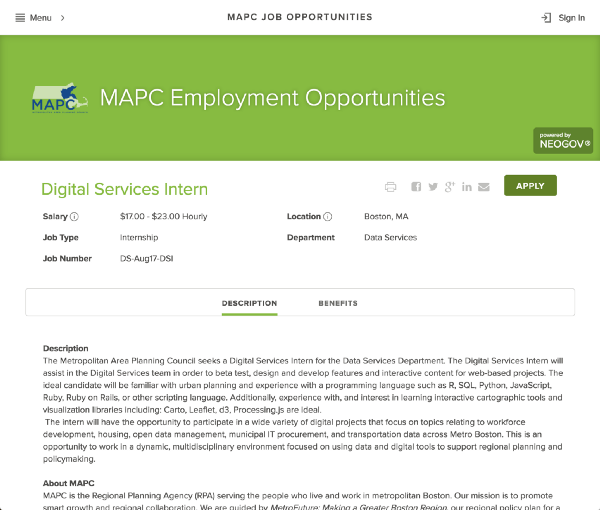This post was originally published by MAPC Full-Stack Developer Ian Hill on Medium. Read the original article here.
Out-of-sight, out-of-mind, government agencies don’t receive enough attention from software developers and soon-to-be graduates looking for rewarding work. Public servants are like the cast and crew of a feature film. A handful of skilled actors capture the audience’s imagination, but hundreds of silent experts film, edit, and contribute to a production. If you’ve ever sat through the credits at the end of a movie, you understand what I mean.
Similarly, we may hear about the activities of Congress, our state legislature, and maybe even our local officials too, but rarely do we discuss the work being done by the elaborate tree of bureaucracy and government agencies that facilitate and provide the services we regularly depend on. If we, as civic technologists, do our jobs well, government services are seamless, and our work fades into the background. While each individual effort does not get public recognition, our work can be incredibly meaningful.
A Glimpse into the Life of a Public Sector Programmer
 We work for our fellow citizens in a mission-driven and open environment. Unsurprisingly, our motivations fundamentally differ from those in the private sector. We write grants, lobby legislators, and persuade local officials to fund our work, but since we don’t worry about profit margins and investors, we can be highly mission driven.
We work for our fellow citizens in a mission-driven and open environment. Unsurprisingly, our motivations fundamentally differ from those in the private sector. We write grants, lobby legislators, and persuade local officials to fund our work, but since we don’t worry about profit margins and investors, we can be highly mission driven.
We can also work out in the open. At least in the world of software development, it’s refreshing that all of our code is open source and available to the world. While that transparency invites scrutiny, we are empowered to talk more openly with friends, colleagues, and professional peers without worrying about Non-Disclosure Agreements or trade secrets.
For example, our Digital Services Team at MAPC has been working on a project to digitize permits for the Departments of Public Works (DPWs) of four towns in the state. While permits are not glamorous, by moving these permits online we can facilitate coordination between the DPWs and the utilities that repair the towns’ infrastructure. That coordination means more reliable and less expensive pipes, wires, and roadways for local residents.
Who you’ll work with
 Our community at MAPC differs from the engineering teams I’ve experienced at startups, but it’s no less vibrant (and often more diverse). Because of the stability of government work, you’ll find many folks raising families or moving in with their partner, but we also have colleagues straight out of college, fellows studying in grad school, and people who have been here for a decade or more.
Our community at MAPC differs from the engineering teams I’ve experienced at startups, but it’s no less vibrant (and often more diverse). Because of the stability of government work, you’ll find many folks raising families or moving in with their partner, but we also have colleagues straight out of college, fellows studying in grad school, and people who have been here for a decade or more.
Every day at MAPC, I see colleagues passionate about their work. It’s clear that we have a growth mindset, and we’re not satisfied with the status quo. We have a wide range of experience, but there’s a consistent, optimistic spirit here at MAPC.
Join us and reach out
If you’re in the private sector looking for your next opportunity, I urge you to consider public service. If you’re working on a project and would like to collaborate, please reach out. We have the opportunity every day to do meaningful work. You might be surprised at the opportunities you’ll find.
Our Digital Services team is searching for a Digital Services Intern. I invite you to check out our job posting.


